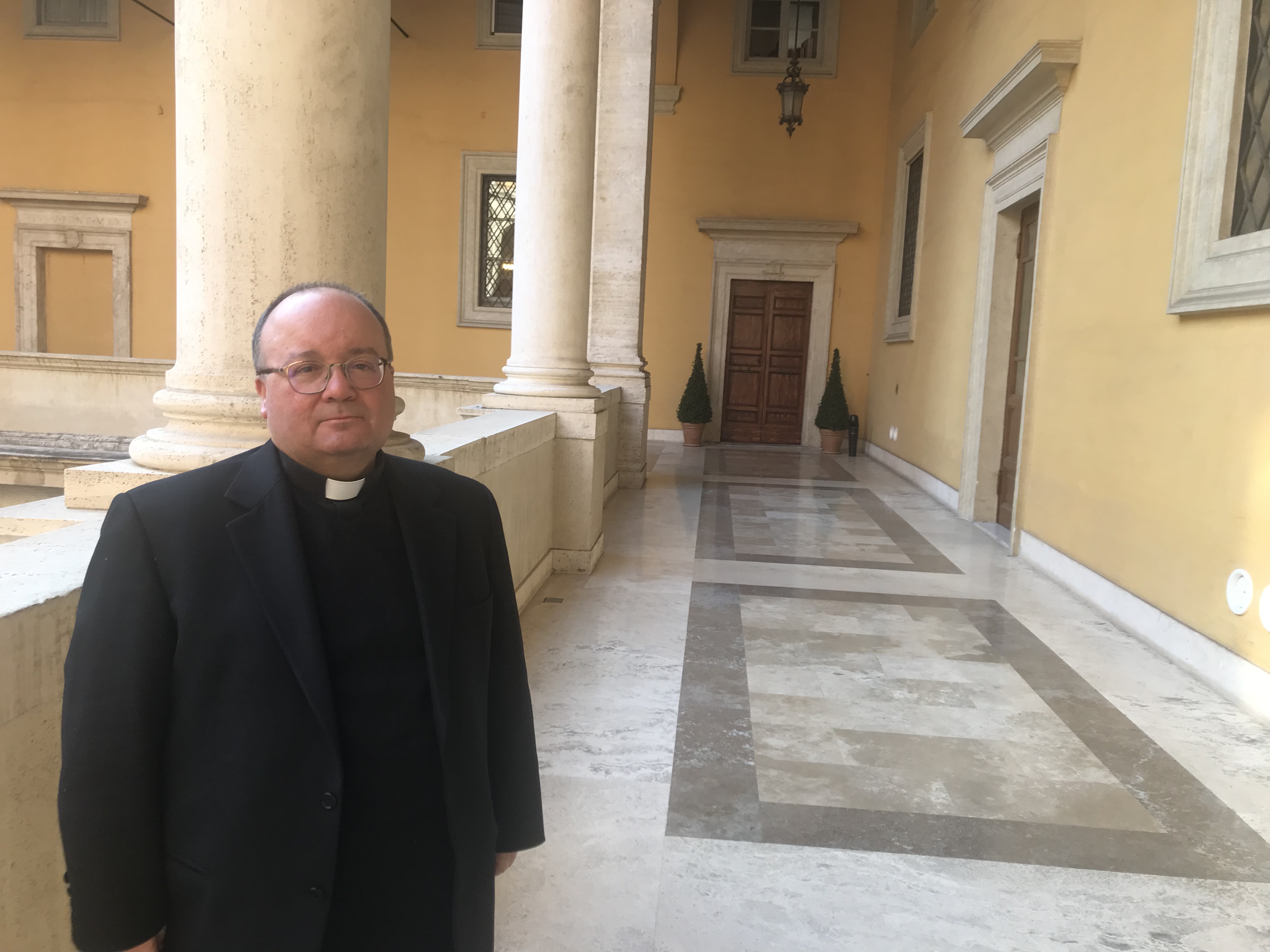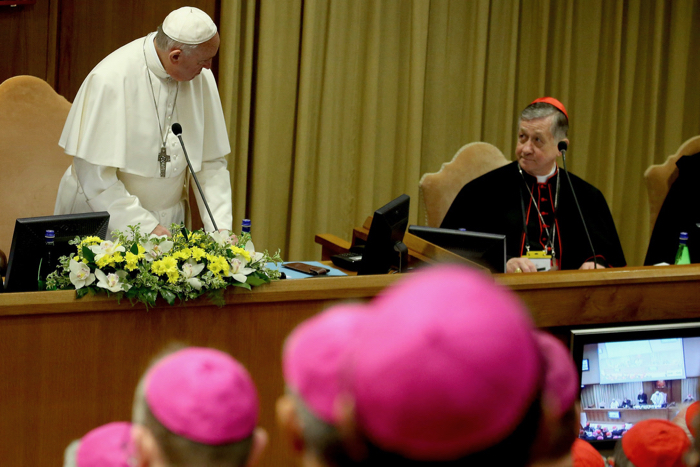Pope Francis opened the Vatican’s sex abuse summit telling bishops they must take “concrete” steps to tackle the scourge.
“The holy People of God looks to us, and expects from us not simple and predictable condemnations, but concrete and effective measures to be undertaken. We need to be concrete,” he told the 190 participants including 114 presidents of bishops' conferences, Vatican officials and religious superiors.
Calling on the bishops to “listen to the cry of the little ones seeking justice”, Francis said that discussions must take place “in a synodal, frank and in-depth manner, how to confront this evil afflicting the Church and humanity.”
Participants were gathered inside Paul VI synod hall in the Vatican on Thursday morning for an intense session of discussions which saw Manila’s Cardinal, Luis Antonio Tagle, break down in tears as he talked about the wounds “inflicted by us, the bishops, on the victims”.
Bishops were given a list of 21 "reflection points" with suggested steps such as raising the minimum age for marriage to 16 years, informing civil authorities about cases of abuse and establishing protocols for dealing with bishops accused of abuse.
The bishops from across the world heard harrowing video testimony from unnamed abuse survivors including from one woman who talked about how from the age of 15 she had sexual relations with a priest over the course of 13 years.
“I got pregnant three times and he made me have an abortion three times, quite simply because he did not want to use condoms or contraceptives,” she said. “Since I was completely dependent on him economically, I suffered all the humiliations he inflicted on me.”
Another victim told the gathering: “I’ll request the bishops to get their act clear because this is one of the time bombs happening in the Church of Asia. If [you] want to save the Church, we need to put our act together and get the perpetrators to book.”
The 21-24 February summit is the first global Church gathering of bishops to address the abuse crisis and includes 36 bishops from Africa who make up the largest cohort at the summit. There has been a concern the crisis is not being taken sufficiently seriously on that continent with one prelate arguing the problem was "very, very minimal".
Aware the world’s media are watching the event, most bishops and cardinals arriving for the summit did so discretely, or via entrances allowing them to avoid the sea of cameras.
With most bishops waving away requests for interviews, the Vatican has sought to present a clear and unified response to a scandal that has done grave damage to the Church’s credibility.
And in his address this morning, Cardinal Tagle stressed that bishops cannot close their eyes to abuse.
“If we want to be agents of healing let us reject any tendency that is part of worldly thinking that refuses to see and touch the wounds of others, which are Christ's wounds in the wounded people,” he said. “Those wounded by abuse and the scandal need us to be strong in faith in this moment. The world needs authentic witnesses to the resurrection of Jesus, who draw close to his wounds as the first act of faith."
Citing six interdisciplinary studies – including one by Czech priest and Templeton prize winner Fr Tomas Halik – he focussed his remarks on the topic of healing wounds, with the Filipino cardinal arguing that a faith which is not wounded and unable to face suffering humanity, cannot be credible.
“How can we profess faith in Christ when we close our eyes to all the wounds inflicted by abuse?” he asked the bishops.
He also drew from the work from social scientist and psychologist Robert Enright, in arguing that after justice for abuse victims, the Church must work towards healing and bringing about forgiveness between victim and perpetrator.
Cardinal Tagle’s address was followed by a more procedures-based intervention by the Archbishop of Malta, Charles Scicluna, a long time former prosecutor of abuse cases who is also adjunct secretary of the Congregation for the Doctrine of the Faith. The doctrine body is responsible for handling cases of priests accused of abuse.
He laid out the steps that bishops must take when handling abuse; told them they must respect safeguarding protocols and obey the civil law. The archbishop called for robust screening of candidates for priesthood while stressing that bishops must help the Pope in scrutinising future church leaders.
“It is a grave sin against the integrity of the episcopal ministry to hide or underestimate facts that may indicate deficits in the lifestyle or spiritual fatherhood of priests subject to a pontifical investigation into their suitability for the office of bishop,” he explained.
The archbishop told them: “People expect you to be men of God. To live simply. Renew your sense of accountability before God, and grow in solidarity with your people.”
Participants will break up into working groups during the gathering and continue to hear the testimony of victims throughout the summit. Many groups of survivors are in Rome for the event and are expecting the Church to come up with clear proposals.



 Loading ...
Loading ...